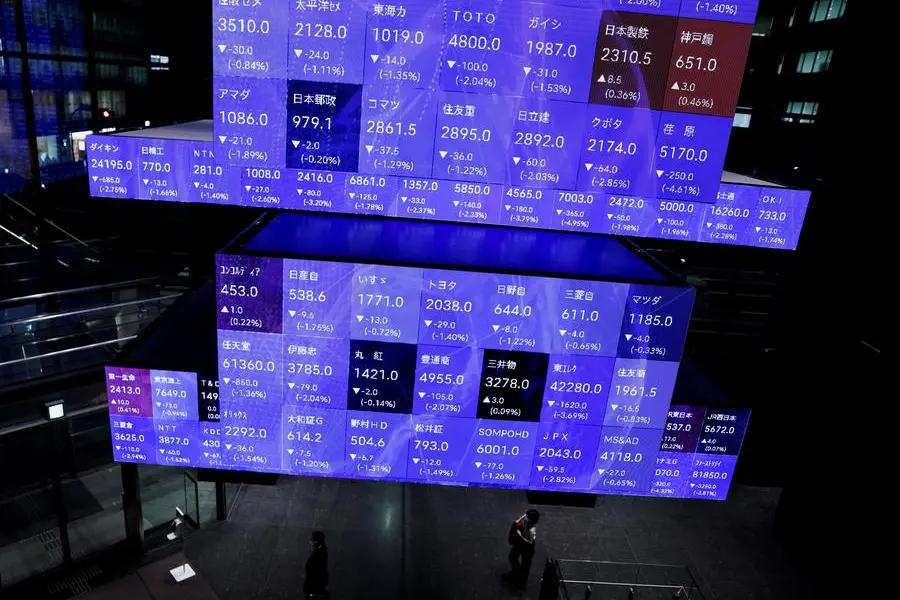PHOTO
Japanese stocks notched their lowest close in more than two months on Wednesday, tracking declines on Wall Street and amid broader Asian peers, as investors braced for key policy meetings this week from the U.S. Federal Reserve and the Bank of Japan.
The Nikkei share average settled 1.36% lower at 27,313.13, its lowest closing level since July 19.
The broader Topix fell 1.36%, marking its weakest close since Sept. 7.
"If the Fed implements a 75-basis-point rate hike, as most people expect, the market should avoid upheaval," said Yasushi Yokoyama of Aizawa Securities, adding that investors are already looking towards the next hike.
The Bank of Japan, however, is considered unlikely to stray from its dovish path. It is the only major central bank not to have hiked interest rates this year, even though inflation has stayed above the bank's 2% target for five months straight.
"The upward price pressures are heavily biased toward food so far, and we thus believe that this August acceleration will not prompt a BoJ policy change," JP Morgan economist Yuka Mera wrote in a research note.
"For monetary policy adjustment, the BoJ will need to see a broadening of price pressures, especially in services and wage inflation."
Japanese government bond yields rose ahead of the central bank meetings, with the 5-year note adding 1 basis point to reach 0.060%. Earlier in the day, the yield rose to 0.065%, its highest since June.
The BOJ made unscheduled offers to buy various JGBs in the morning, but the response was muted and the benchmark 10-year note remained untraded with the yield last at 0.25%, the BOJ's implicit policy cap.
The yen was trading slightly lower at just below 144 to the U.S. dollar, within range of a 24-year historical low.
The Nikkei index saw 187 of its 225 constituents drop in the morning session, while 37 gained and one traded flat.
Air conditioner manufacturer Daikin Industries Ltd weighed on the index the most with a 3.94% slump.
Japan Steel Works Ltd was the best performer, rising 4.11% despite the company lowering its profit forecast for the current fiscal year.
Energy and financials were the only sectors to gain overall. (Reporting by Sam Byford and Tokyo markets team; Editing by Devika Syamnath)





















